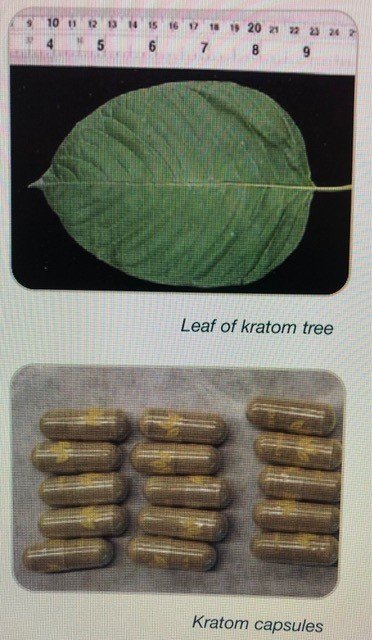Throughout much of Scot Yarnell’s career, he has treated people addicted to opiates.
Today, he is watching for reactions to an over-the-counter herb “that is fast becoming part of the ongoing opioid crisis.” It is called kratom and is sold legally here.
“People, including our neighbors in central Kansas, are becoming addicted to this drug,” said Yarnell, a psychiatric mental health nurse practitioner at The Center for Counseling & Consultation, 5815 Broadway. “They are becoming addicted to a drug that is legally sold over the counter.
“In my opinion, it shouldn’t be legal,” he continued. “But, in time, society will see the negative effects that arise and decide to make it illegal. Kansas should follow the lead of six states that have already done this.”
Those states are Alabama, Arkansas, Indiana, Rhode Island, Vermont and Wisconsin.
Kratom is an herb with opioid and stimulant-like properties. It is not approved by the Federal Drug Administration for any use.
“People buy kratom because of its euphoric effects; it can give an opioid-like high,” Yarnell explained. “Also, they use it for self-treatment of opioid withdrawal with increasing numbers of lethal overdoses and other effects.
“Kratom should not be used in patients withdrawing from opioids,” Yarnell emphasized. “It can make a bad situation even worse.”
The herb is ingested orally in pill or liquid form; it also can be smoked. It is sometimes used for pain that is often treated with hydrocodone, oxycodone or other opioids.
The herb has grown in popularity in the United States because it acts as a stimulant at low doses and an opioid-like substance at higher dosages, Yarnell noted.
Adverse consequences are usually mild but there are potentially serious side effects, including respiratory depression with chronic high doses.
“In addition,” Yarnell said, “the use of kratom with other substances has been linked to seizures. The number of deaths has been increasing.
“I have helped detoxify patients from kratom in other parts of Kansas,” he recalled. “When the case is severe enough, we use the same protocol as detoxing from heroin or fentanyl.”
Kratom is a tropical tree native to Southeast Asia. According to the Drug Enforcement Administration (DEA), physical effects can include nausea, itching, sweating, dry mouth, constipation, increased urination, fast heart rate, vomiting, drowsiness, loss of appetite and insomnia.
Lower doses cause increased alertness and energy; the user also talks a lot. Higher doses cause sedative effects.
There have been instances of psychotic symptoms such as hallucinations, delusion and confusion, the DEA also reports.
The Center for Counseling & Consultation is a Community Mental Health Center serving Barton, Pawnee, Rice and Stafford counties. Professionally trained personnel offer: individual and group therapy; marriage and family counseling; community-support services; community-based services; psychosocial rehabilitation; peer support; and medication management. The confidential 24/7 crisis hotline number is 800-875-2544.





